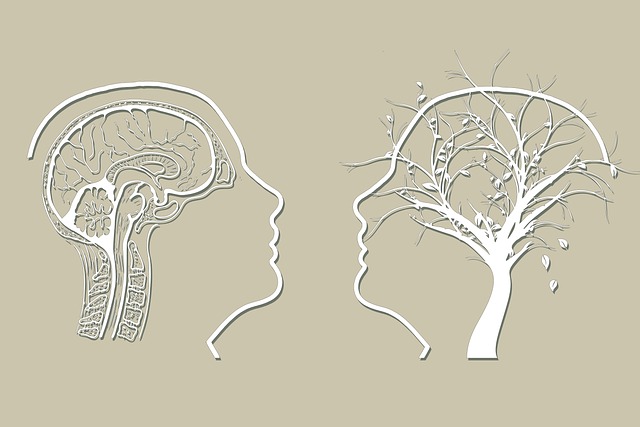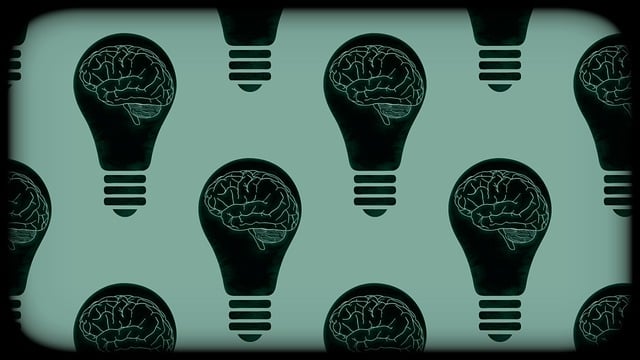Trauma often goes unnoticed in postpartum discussions but profoundly impacts new mothers' mental health. Golden Postpartum Depression Therapy offers specialized care, integrating evidence-based practices like Self-Care and Emotional Healing in a safe space for processing traumatic experiences. This holistic approach equips mothers with social skills to navigate interactions comfortably, fostering community support for recovery. Early identification of PPD symptoms is crucial; cultural sensitivity ensures tailored support, while Golden Postpartum Depression Therapy provides specialized therapy, building resilience and improving overall well-being. Accessing resources like this therapy, support groups, and online forums breaks stigma, promoting mental wellness and confidence in new mothers. A trauma-informed care system, including self-awareness training for professionals, early intervention, and accessible therapy options, normalizes conversations around mental health, ensuring compassionate support for affected individuals.
“Trauma support services play a pivotal role in healing and recovery, especially for new mothers. This article delves into the profound impact of trauma on maternal mental health, highlighting the critical need for specialized care. We explore the signs of Postpartum Depression (PPD), offering insights into its subtle manifestations. Subsequently, we introduce Golden Postpartum Depression Therapy as a revolutionary approach to trauma-informed care. By discussing accessible resources and strategies for building comprehensive systems, this guide aims to empower professionals and support networks in providing holistic trauma support.”
- Understanding Trauma and Its Impact on New Mothers
- Identifying the Signs of Postpartum Depression (PPD)
- The Role of Golden Postpartum Depression Therapy
- Accessing Supportive Resources for Mental Health Care
- Strategies for Building a Comprehensive Trauma-Informed Care System
Understanding Trauma and Its Impact on New Mothers

Trauma, often overlooked in discussions about new motherhood, can significantly impact women’s mental and emotional health during the postpartum period. It is essential to understand that experiencing trauma, whether from a recent event or an accumulated history of adversity, can manifest as a range of symptoms, including intense emotions, flashbacks, and nightmares. For many new mothers, these symptoms might be confused with postnatal blues or even postpartum depression, which could delay necessary support and treatment.
Golden Postpartum Depression Therapy recognizes this unique challenge and offers specialized care to address trauma’s profound effects. By integrating evidence-based practices such as Self-Care Practices and Emotional Healing Processes, therapists create a safe space for mothers to process their traumatic experiences. Additionally, Social Skills Training can equip new mothers with the tools to navigate social interactions more comfortably, fostering a sense of community and support that is vital for their recovery.
Identifying the Signs of Postpartum Depression (PPD)

Postpartum depression (PPD) is a serious mental health condition that can affect new mothers, often emerging within the first year after childbirth. Recognizing the signs early on is crucial for accessing effective Golden Postpartum Depression Therapy. Symptoms may include persistent sadness, anxiety, fatigue, and feelings of hopelessness or worthlessness. Changes in sleep patterns and appetite, along with difficulty concentrating and making decisions, are also common indicators.
While self-care practices like adequate rest, healthy eating, and stress management can be beneficial, cultural sensitivity in mental healthcare practice is essential for providing tailored support to diverse communities. Understanding the unique experiences and challenges of new mothers from various backgrounds ensures that treatment approaches are accessible, non-judgmental, and culturally affirming.
The Role of Golden Postpartum Depression Therapy

Golden Postpartum Depression Therapy plays a pivotal role in supporting individuals navigating the challenges of postpartum depression (PPD). This specialized therapy offers a safe and non-judgmental space for new mothers to process their emotional experiences, often characterized by intense sadness, anxiety, and physical exhaustion. By combining evidence-based practices with a nurturing approach, therapists help clients develop effective coping strategies to manage symptoms and improve overall well-being.
The therapeutic process emphasizes the interconnectedness of mental health, stress management, and emotional intelligence, empowering mothers to build resilience. Through personalized interventions, Golden Postpartum Depression Therapy facilitates a boost in confidence, enabling women to confront the unique demands of motherhood with renewed strength and clarity. This holistic support is crucial in fostering positive relationships and creating a nurturing environment for both mother and child.
Accessing Supportive Resources for Mental Health Care

Accessing supportive resources for mental health care is a vital step towards healing and recovery, especially when dealing with conditions like postpartum depression. Many women struggle silently, but recognizing the need for help is the first win. Various trauma support services are available, offering specialized therapy tailored to address specific challenges. For instance, Golden Postpartum Depression Therapy provides a safe space for mothers to process emotions, connect with peers, and gain valuable tools for stress management. This form of therapy not only aids in managing symptoms but also fosters mental wellness and boosts confidence, enabling individuals to navigate their journey with resilience.
Supportive resources extend beyond therapy; they include support groups, online forums, and community initiatives focused on promoting mental wellness. Engaging with these networks can help break the stigma surrounding mental health issues, offering a sense of belonging and mutual understanding. Whether seeking one-on-one counseling or joining collective support groups, individuals have multiple avenues to explore, ensuring they find the right fit for their needs.
Strategies for Building a Comprehensive Trauma-Informed Care System

Building a comprehensive trauma-informed care system requires a multi-faceted approach that touches every aspect of support services. Firstly, integrating self-awareness exercises into healthcare curricula ensures that professionals are equipped to recognize and respond sensitively to traumatic experiences. This fosters an environment where individuals feel seen, heard, and validated, reducing the potential for retraumatization. Secondly, prioritizing depression prevention strategies, such as early intervention and access to Golden Postpartum Depression Therapy, is vital to addressing mental illness stigma reduction efforts and promoting holistic healing.
By creating systems that not only treat symptoms but also address underlying trauma, communities can foster resilience and create safer, more supportive environments for everyone. This includes leveraging technology, like online platforms offering accessible therapy options, and encouraging peer support networks to enhance continuity of care. Ultimately, a trauma-informed approach aims to normalize conversations around mental health, ensuring that those affected by trauma receive the compassionate, effective support they need.
Trauma support services play a pivotal role in empowering new mothers, particularly those grappling with postpartum depression. By integrating strategies like Golden Postpartum Depression Therapy and building comprehensive trauma-informed care systems, we can ensure that mothers receive the holistic assistance they need to navigate their challenges. Accessing supportive resources for mental health care is crucial, enabling early intervention and long-term healing. Through understanding trauma, identifying PPD symptoms, and adopting innovative therapeutic approaches, we can foster a nurturing environment that supports the unique needs of new mothers.













